- Home
- Lynne Connolly
Venice Page 6
Venice Read online
Page 6
It was getting warmer as May became more advanced, and we travelled further south. The scenery became more interesting as spring blossoms began to bloom and the terrain less flat. I grew interested in what lay over the next rise, what the next small town would look like. The buildings we passed were more unusual to my English eyes, painted white or a pastel color. Carier procured a map for me, and I could follow where we were and how far we had come.
By the time we reached Chalon-sur-Saône, we had been on the road for two weeks. I was heartened to see very soon we would arrive in Italy, with Venice that much nearer. Carier assured us that if the weather stayed fine we’d be in Venice in less than a fortnight; the thought made me excited and impatient. Now I really was travelling towards something. Did ever a newlywed woman travel so far on her bride-trip without her husband?
WE WERE TWO DAYS ON the diligence before disembarking in Lyons, which seemed to be a very pleasant city. We didn’t stay there above a night, setting out for Nice.
Now came the most difficult part of our journey. From Nice, we were to travel to Piedmont on the Tend Pass, across the Alps, a journey taken by many intrepid passengers before us. I thought the sea passage would be preferable, but Carier explained the sea journey wouldn’t be any quicker than the mountain pass. “We can acquire a chair for you, ma’am,” Carier said, “but that would add two days to our journey. If you would consent to use a mule as transport we could cross in three days, God willing.”
“Is it dangerous?”
He shook his head. “Not if we ride carefully, ma’am. I’ve taken the precaution of bespeaking the best guide in Nice. He will take us all the way to Piedmont, and ensure we come to no harm.”
I agreed it seemed like the best way. We were deep into May now and past the worst of the weather, but Nichols was careful to find some warm cloaks for the journey.
I found I could ride a mule as well as I could ride a horse, which was tolerably well.
The first day passed without incident, and I found the scenery fascinating. I wished I could paint as well as my sister Ruth, to capture the purity of our surroundings. I had the time to take a few sketches for her. Although the inn we stayed at that first night was not the best we had encountered on the road, I fell into bed early, hoping we could set out as early as possible the next day.
It dawned fine but noticeably colder, and I was glad of the cloak Nichols wrapped around me. Our guide was a rough looking man of few words, and those I didn’t understand, being spoken in a patois I was wholly unfamiliar with, but he seemed to know his way.
One moment I was looking at the beautiful view from one side of the pass, and the next I was coming around, the hard road under my back, feeling decidedly sick, pillowed on Nichols’s lap. When I put my hand to my throbbing head I touched a bump as big as a hen’s egg, or so it seemed to me. I didn’t remember falling, but she told me my mount had stumbled and thrown me.
I sat up. Nichols held me steady while I vomited and then took a cloth from her pocket and cleaned my face. She used snow to wet another cloth. The cold cloth refreshed me and helped to bring me around properly. I lay still for a while, regaining my equilibrium. I realised with relief that my sturdy steed was unhurt and we could continue our journey once I’d recovered.
“What happened?”
“The mule stumbled and threw you, ma’am,” Nichols said. “Lie quietly for a while. You should rest, and then the guide will take you up.” If it meant we could make progress, then I was all for it.
I shivered, and Carier stripped off his coat to put over me, afterwards walking to where our luggage lay by the side of the road to find another travelling cloak. Our guide had taken the opportunity to take the worst of the loads from our animals and set them to grazing.
“How long was I unconscious?” I whispered. I was developing one of the worst headaches I had ever known. Anything above a whisper hurt.
“Not long, ma’am,” my maid replied. “Maybe ten minutes.”
I sighed. Another delay before we reached Venice. Then, to the evident apprehension of my attendants we saw several figures coming towards us along the road, including two sedan chairs carried by four sturdy men. The chairs were slightly ahead of the attendant mules, which were laden with heavy luggage. As they neared our sorry little party a lady popped her head out of the window of the second vehicle.
“Oh dear!” the lady cried. “It is poor Mrs. Locke!”
I had no idea who they were, but luckily Nichols did. “We met them two nights ago when we had to eat with all the other guests at the inn. They did their best to ingratiate themselves with everyone and their name is Ravens.” I nodded. I still didn’t remember, but perhaps the accident had knocked it out of my head.
Both she and her husband got out of their chairs and came over to me. Both well-upholstered individuals, made bulkier by the warm clothing they wore. Mrs. Ravens, her bosom jutting before her like a shelf, bent down to me and I felt a momentary fear that I might be smothered.
“Poor Mrs. Locke, what a shame!” I shivered when her cool hand touched my forehead and she drew it back. She smelled strongly of lavender and lily-of-the-valley, neither of them favourites of mine, although I believe lavender is supposed to help with headaches. Mine had gone beyond headache and into head-splitting territory.
Carier briefly told them what had happened.
“The poor lady must take your chair, sir!” exclaimed Mrs. Ravens to her husband, a suggestion to which he readily agreed. Carier frowned. We had little choice, it seemed. I couldn’t abide the mule again, not until my pain subsided, but we couldn’t stay here and no hostelry lay within easy reach.
“If you would lend me your mule,” Mr. Ravens suggested, “we will do very well. You must not ride in your condition, madam, the chair is infinitely preferable to that.”
Carier was not eager to take up the offer, but Nichols interrupted his polite refusal. “Madam is shivering, Mr. Williams, and I fear she will take a chill or worse if she stays here much longer.” “Mr. Williams”, as Carier was known on this trip, was forced to agree. My appearance must have been severe for him to consider it, or maybe he realised it was this or nothing.
Carier and Mr. Ravens helped me into the chair, and Nichols made sure to tuck me in a travelling cloak and blanket, with a hot brick at my feet. I felt much better, and deeply thankful to my hosts, who showed such touching concern for my welfare. Carier would ensure they or their attendants meant me no harm, and would no doubt free us from their company as soon as he could. But I needed this passage over the mountains, or we might be on the mountaintop come nightfall. Even in May this wasn’t a pleasant prospect.
Nichols and Carier remounted their mules watching me anxiously, Carier still obviously ill at ease. I was much more comfortable in the chair, and although our progress would be slower, at least we were still moving. In fact, I was so comfortable, I fell asleep, not waking until much later in the day.
When I sat up, I found my headache had subsided to bearable. The next staging post wasn’t far off, and as I had supposed, Carier had acquired a vehicle for our use the next day. Our altitude was quite high now, and it wasn’t as warm as it had been, but we were well equipped with blankets and the like.
The Ravens invited me to share their dinner, and I accepted, only taking the precaution of asking my maid should be present, “in case I fell ill again”; a fatuous excuse, but it did the trick. I remembered Richard’s strictures that I should never be without either Carier or Nichols with me and I considered it a reasonable precaution to take. Carier disappeared to discover what he could about our hosts.
So Nichols was present during dinner, stationed behind my chair as I let the Ravens drink and become more garrulous. I ate and drank only moderately.
Both the Ravens declared their delight to see me so much better. “If there is no chair available, please don’t hesitate to make use of ours for as long as you require.”
I smiled and thanked them for their kind assistanc
e, although I already knew there would be a chair available for our use once Carier had seen to it. I didn’t know how much this journey was costing, but I guessed a lot had been expended in making it as smooth and fast as possible. Carier took care of the day to day accounts and we always paid in cash, without resorting to the local banks, although Richard held accounts in several of them. Carier must have a considerable sum stowed somewhere about his person, but I didn’t think anyone would be successful in relieving him of it.
“Your maid tells us you too are going to Venice,” said Mrs. Ravens. “We would very much like to see you once we reach that fair city.”
“That is very kind,” I murmured, wondering what had got into Nichols to reveal even that much.
While the Ravens were wonderfully kind, I found their presence a trifle overwhelming. I guessed them to be a little older than Richard and I but their showy dress and air of ostentation did them no favours in my eyes. Mrs. Ravens’ flowery phrases bid fair to bring back my headache.
“Of course, my dear Mrs. Locke, you must have guessed some of our secret,” said Mr. Ravens. He twirled the rich red wine around his glass thoughtfully. I felt Nichols’s hand leave the back of my chair, and knew she was putting her hand in her pocket, as indeed I was. I felt the reassuring butt of my pistol, curled my hand around it and found the hammer with my thumb.
“I know I can confide in you,” Ravens continued, glancing across the table at me. “Did you not notice our clothes in Chalon, how much more superior they were than a mere Mr. and Mrs. Ravens could afford? It was a pardonable extravagance.” He smiled conspiratorially at his wife. “We are tired of travelling incognito. The truth is,” and he leaned over the table towards me, his voice dropping. “We are really Lord and Lady Strang. Perhaps you’ve heard of us?”
I GRIPPED THE BUTT of my pistol convulsively, feeling the stillness behind me as Nichols took in what Ravens had just said. Mrs. Ravens smiled fondly. Try as I might, I could see no resemblance to me in her face, though it was evident her husband had seen Richard, or a print of him, because he had tried for ostentation in dress, although the quality and natural elegance were notable by their absence. He was still speaking, smiling. “I see you’ve heard something. You see, dear ma’am, there was an accident to our yacht, and we have been forced to take to the road, but the road being what it is, we thought it safer to travel incognito.”
I made a tremendous effort and put a polite smile in place. He was telling me about the wedding, and the yacht, as though I hadn’t been there and seen it. I felt as though I floated in a dream. The slight feeling of unreality engendered by my accident earlier in the day didn’t help, but I had Nichols there to corroborate what I was hearing.
Mr. Ravens didn’t look very much like my husband. He was older, for a start, and his face was heavier, pale and lined, but he wore the elaborate clothes and style of wig Richard affected and he struck elegant poses in a blurred mirror image. Where Richard’s body seemed to fall naturally into elegance, here this man was making an effort. His face was also made up, much as Richard’s had been when I first met him. If they had attended the wedding, even as members of the public, why did they not recognise me? But they didn’t—or they were pretending not to.
Mrs. Ravens was not at all like me, but there had been much less opportunity for them to see me. I had been in mourning when I had first become engaged to Richard, and then ill, so my public appearances had been much more restricted. By the time society had realised it should be interested in me, I wasn’t generally available for its scrutiny.
Mrs. Ravens was smaller and plumper than me, and I knew I didn’t simper like that, nor wear so many patches on my face. I wasn’t sure I liked anyone impersonating me, but I think it would have been worse if she had looked more like me.
I had to find out what I could. “So you decided to go to Venice—my lord?”
Mr. Ravens clasped his hands together in a most un-Richard like gesture. “Such a beautiful city. We were always going to go there eventually. Such a shame the yacht let us down!” Wasn’t it just. He continued. “We hired a fine palazzo. Hopefully the time will give us an opportunity to engage in some business ventures there.”
“You’re in business?” I said.
His hands now went out in an expansive way. “I dabble only. I understand your husband is in business?”
“He’s a wine merchant, my lord,” I replied. “Not in your league, I’m sure.”
He smiled graciously. “Maybe not.”
I saw the light, or at any rate, a glimmer. This could be the beginning of a trick, a fraud. Not our pursuers, or more likely not. They hadn’t recognised me, and surely the assassins would know what I looked like? I hadn’t seen a scrap of recognition and if Carier and Nichols had seen anything at all, we would be heading back the way we came, preparing to take the sea route to Venice. So I decided to fish for more clues. “I thought Lady Strang had suffered an injury. The news was all around the ship on the day we left for the continent.”
He took his lady’s hand tenderly. “A slight injury, no more. As you can see, she is back to her lovely self.” The lady simpered again, and I had a sudden urge to hit her. If she was impersonating me, the least she could do was to get it right.
I released my hold on my pistol and smiled sweetly. “Some wine?” Nichols moved from behind me to pour it. One handed.
They seemed to want to play down the assassination attempts, and this was only explained to me later, when Nichols, Carier and I were locked in the safety of my bedroom.
Carier frowned, but since this was close to his habitual expression it was hard to know what he was feeling. “I spent the evening intoxicating their servants. They seem to believe the rumour that the shooting was an accident, some stray bullets from a poacher, and the explosion was an accident, a fire on board, so they have read about it rather than knowing anything firsthand. I’ve put enquiries in train and I think it best if we were out of here as soon as daylight dawns.
“If you’re up to it, madam?” he added, in belated remembrance of my injury.
I assured him I was. I too was anxious to get away from these impostors. “It’s like being in a bad dream. One where everything is confused and nothing is what it should be.”
WE WERE UP WITH THE sun the next day, and left quietly for the pass over the Alps. I left a carefully worded note of thanks for the Raven-Strangs but omitted to mention our address in Venice. If the road had been safe, I thought Carier might have suggested we travel all night, but we had to wait until the guide could see which was road and which was Alp.
I had a terrible day. Worries and speculations about the fraudulent Strangs kept me from looking out too much as we passed dizzying drops and snow-encrusted peaks. “Some people come here on purpose to see these peaks, ma’am,” Nichols commented, leaning down from her mount to make sure I was all right.
“I would travel extra mileage to get away from them, if we weren’t in such a hurry,” I replied, clutching the armrest as though it could save me if I needed it to. I was not impressed by the spectacular scenery. I have never been particularly fond of heights.
Carier had changed our reservations at some of the inns on the road ahead as an extra precaution. “These people tend to choose someone as their targets. They call them conies or marks. Then they play on them until they have what they want, usually money.”
“Then you think they’re tricksters?”
He nodded. “All my investigations seem to point that way, ma’am.”
“Just as well they don’t know what we have, then,” I murmured. All through the journey Nichols had carried my jewellery in a large bag under her skirts, in case I needed to become Lady Strang again. But I wore only simple jewellery, had my hair dressed in severe styles and wore modest, plain clothes as the wine-merchant’s wife.
I had created a character for Mrs. Locke on this journey, one totally unlike me, partly to help the deception, but also to create some amusement for myself. She was an in
dependent lady, used to travelling long distances, though she would usually be with her husband. She was very practical, and liked to oversee her staff personally, much as my sister Martha did. She was childless, but it didn’t matter much to the Lockes, as they were not of the landed classes, so didn’t have to think dynastically, and my Mrs. Locke wasn’t the maternal type. She could speak some languages fluently, and was used to the customs of many countries. On the whole, I thought I should like to be Mrs. Locke, I was sure her life would be intensely interesting. I thought she would keep a journal, and since I have kept one all my life, that wasn’t difficult to keep up. I just had to keep any personal references out of it.
After another day coming down the other side of the mountain range, something I do not want to dwell on too much, we reached Piedmont, and I was thankful to be able to ride in a coach again.
The bump on my head had localised to a tender spot, only hurting if touched, I was anxious to get on as quickly as I could. My bruises had all gone now, and the graze on my head left by the bullet had healed completely.
Leaving Turin, we reached Milan in two days. I liked Milan, a busy city with many fine buildings, and a breathtaking cathedral. I wondered what it would be like to be married there, in the sun of Italy, instead of the splendours of Exeter. I made the coachman drive round it twice before we left so I could study it, though I didn’t stop to go inside. I wanted to get to Venice.
Due to Carier’s vigilance, we didn’t see the fake Strangs again, although he was now having them watched. “When we reach Venice,” he told me, “I’ll have a Thompson’s man or two put in their household, so we can find out what they’re up to.”
I agreed it would be a sensible move. “But I don’t want our identity compromised.”
“Indeed, ma’am.”
It took another three days to reach Venice. It was dark when we arrived, but I insisted we push on, instead of putting up for the night somewhere. I couldn’t bear being so close, but not yet there.

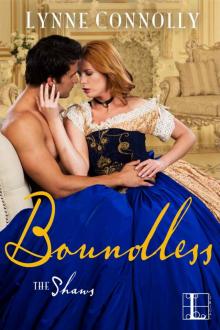 Boundless (The Shaws)
Boundless (The Shaws)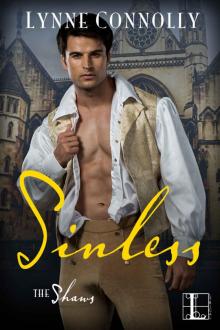 Sinless (The Shaws)
Sinless (The Shaws)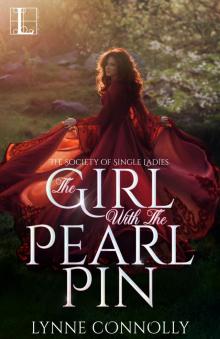 The Girl with the Pearl Pin
The Girl with the Pearl Pin Hosts to Ghosts Box Set
Hosts to Ghosts Box Set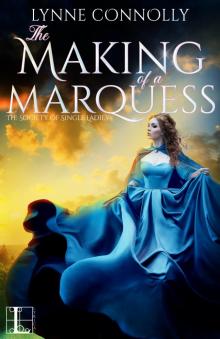 The Making of a Marquess
The Making of a Marquess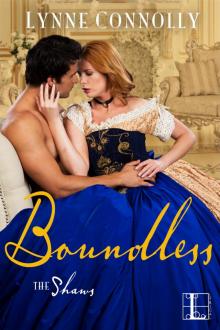 Boundless
Boundless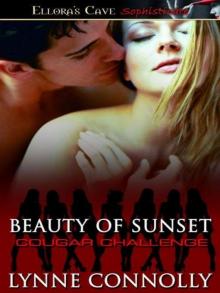 Beauty of Sunset
Beauty of Sunset Virginia And The Wolf
Virginia And The Wolf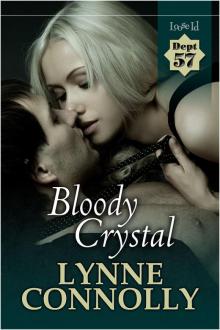 Department 57: Bloody Crystal
Department 57: Bloody Crystal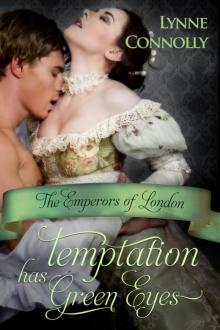 Temptation Has Green Eyes
Temptation Has Green Eyes Forged by Love: Even Gods Fall in Love, Book 4
Forged by Love: Even Gods Fall in Love, Book 4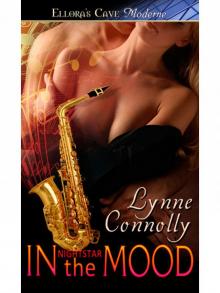 IntheMood
IntheMood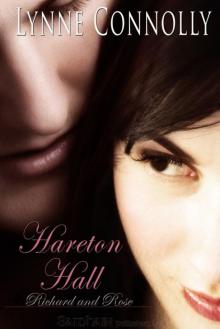 Hareton Hall: Richard and Rose, Book 6
Hareton Hall: Richard and Rose, Book 6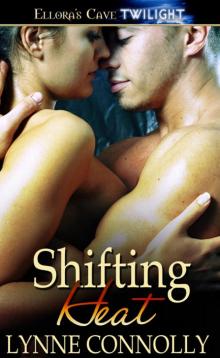 ShiftingHeat
ShiftingHeat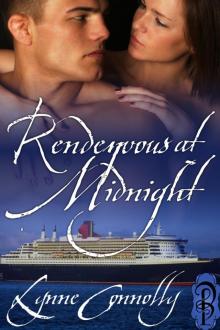 Rendezvous at Midnight
Rendezvous at Midnight Yorkshire: Richard and Rose, Book 1
Yorkshire: Richard and Rose, Book 1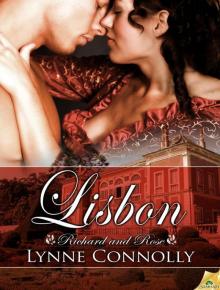 Lisbon: Richard and Rose, Book 8
Lisbon: Richard and Rose, Book 8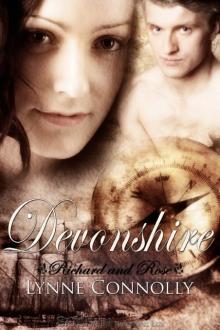 Devonshire: Richard and Rose, Book 2
Devonshire: Richard and Rose, Book 2 Venice
Venice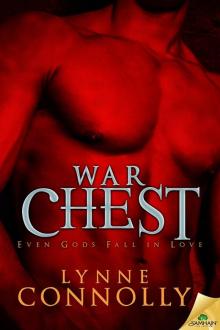 War Chest: Even Gods Fall in Love, Book 5
War Chest: Even Gods Fall in Love, Book 5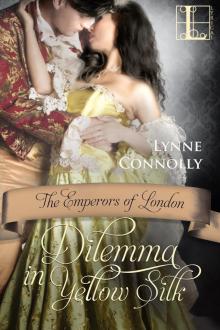 Dilemma in Yellow Silk (Emperors of London)
Dilemma in Yellow Silk (Emperors of London)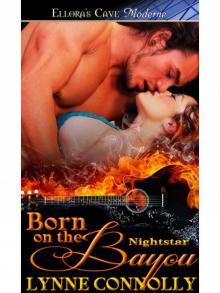 BornontheBayou
BornontheBayou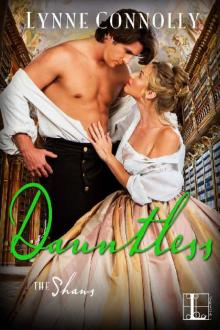 Dauntless (The Shaws)
Dauntless (The Shaws)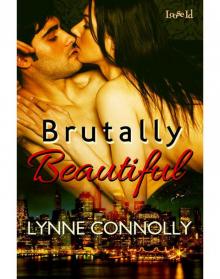 Brutally Beautiful
Brutally Beautiful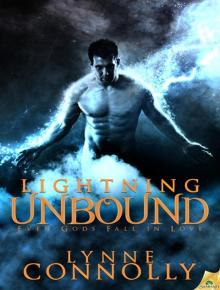 Lightning Unbound: Even Gods Fall in Love, Book 1
Lightning Unbound: Even Gods Fall in Love, Book 1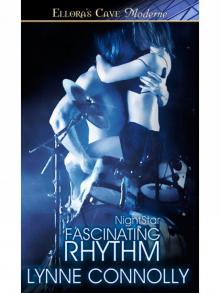 FascinatingRhythm
FascinatingRhythm Fearless
Fearless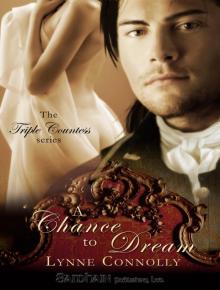 A Chance to Dream
A Chance to Dream Mad for Love: Even Gods Fall in Love, Book 2
Mad for Love: Even Gods Fall in Love, Book 2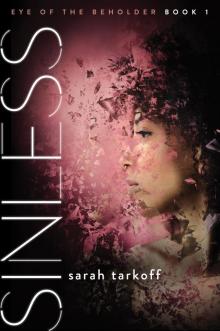 Sinless
Sinless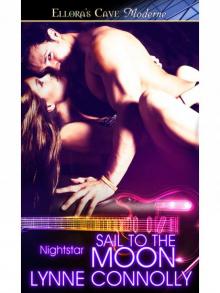 SailtotheMoon
SailtotheMoon Wild Lavender
Wild Lavender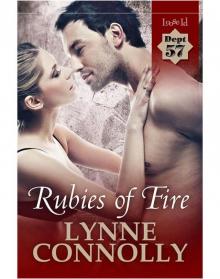 Department 57: Rubies of Fire
Department 57: Rubies of Fire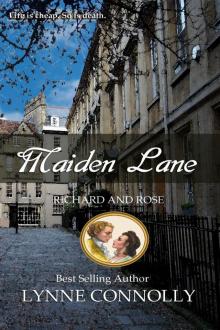 Maiden Lane
Maiden Lane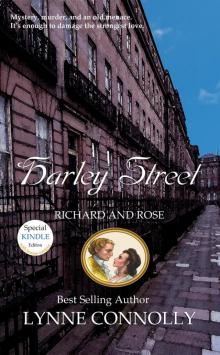 Harley Street
Harley Street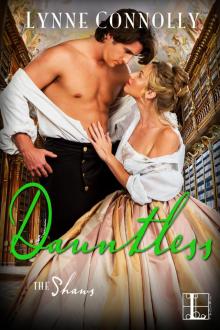 Dauntless
Dauntless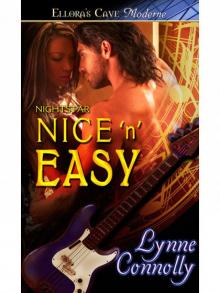 NicenEasy
NicenEasy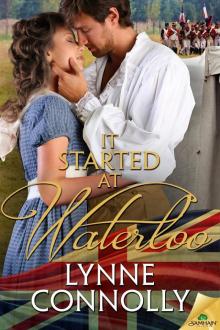 It Started at Waterloo
It Started at Waterloo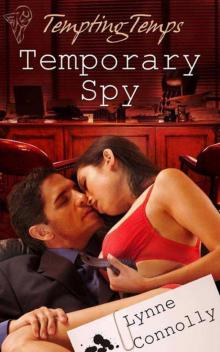 Temporary Spy
Temporary Spy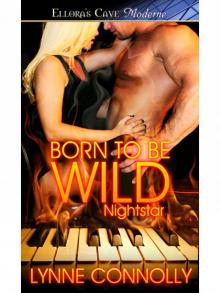 BorntobeWild
BorntobeWild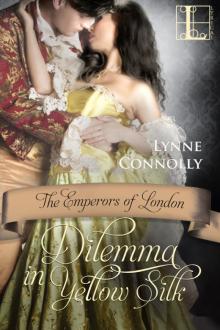 Dilemma in Yellow Silk
Dilemma in Yellow Silk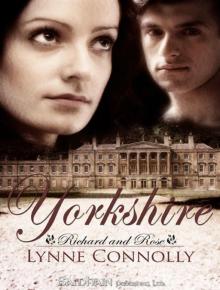 Yorkshire
Yorkshire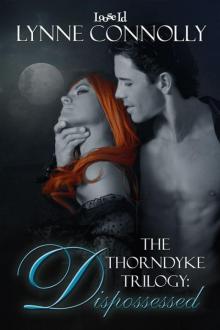 The Thorndykes 1: Dispossessed
The Thorndykes 1: Dispossessed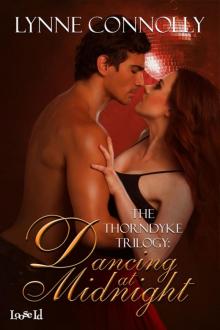 The Thorndyke Trilogy 2: Dancing at Midnight
The Thorndyke Trilogy 2: Dancing at Midnight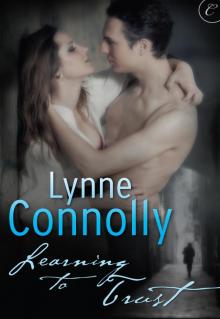 Learning to Trust
Learning to Trust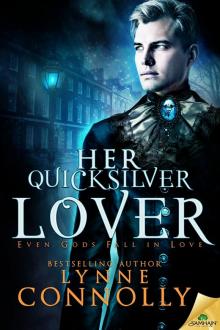 Her Quicksilver Lover: Even Gods Fall in Love, Book 6
Her Quicksilver Lover: Even Gods Fall in Love, Book 6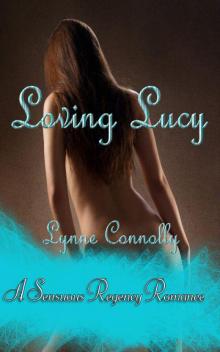 Loving Lucy
Loving Lucy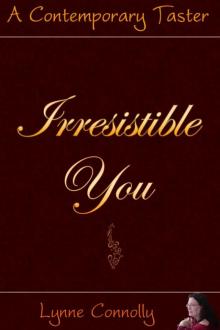 Irresistible You
Irresistible You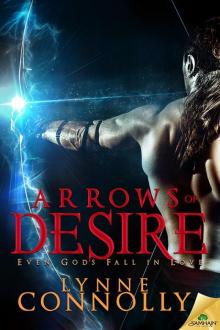 Arrows of Desire: Even Gods Fall in Love, Book 3
Arrows of Desire: Even Gods Fall in Love, Book 3 Unbroken
Unbroken Devonshire
Devonshire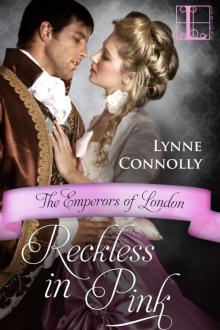 Reckless in Pink
Reckless in Pink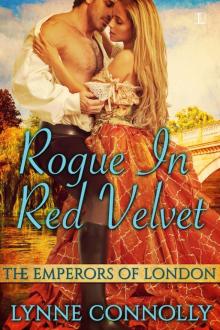 Rogue in Red Velvet
Rogue in Red Velvet